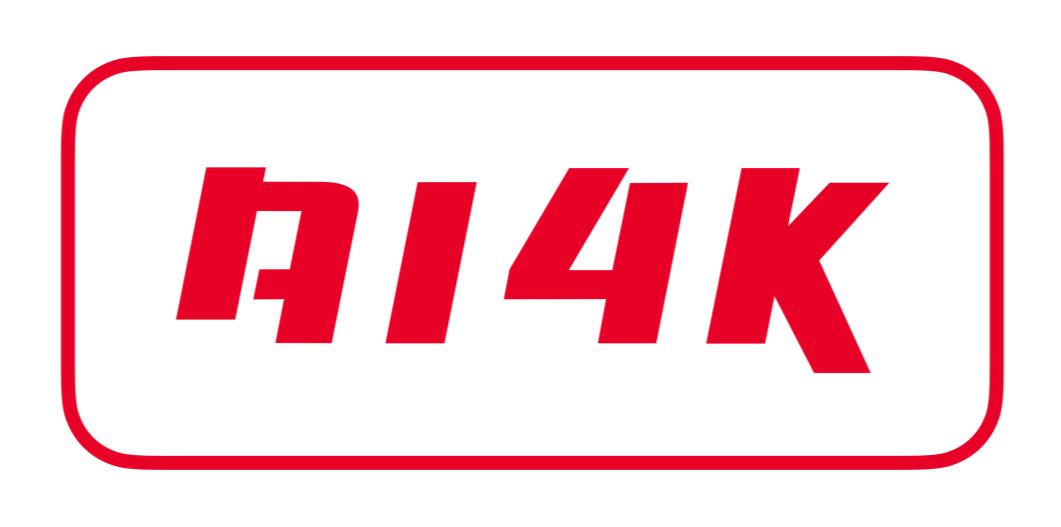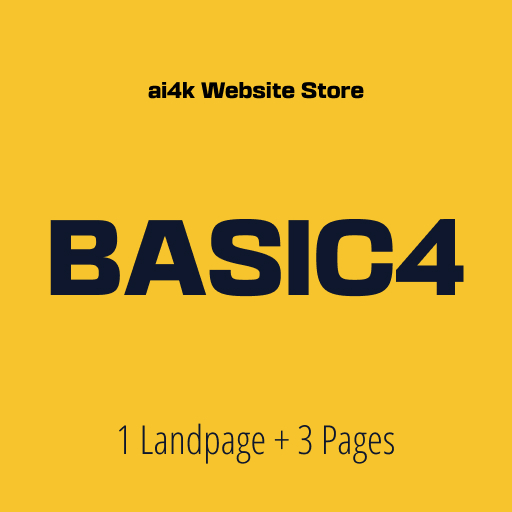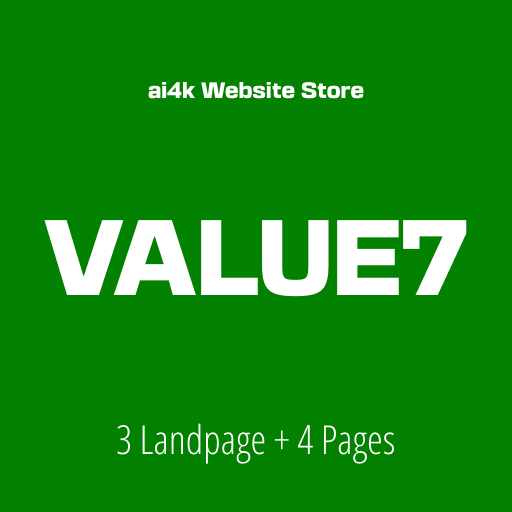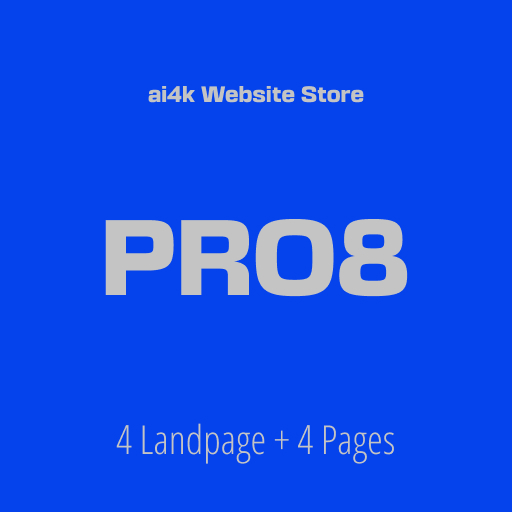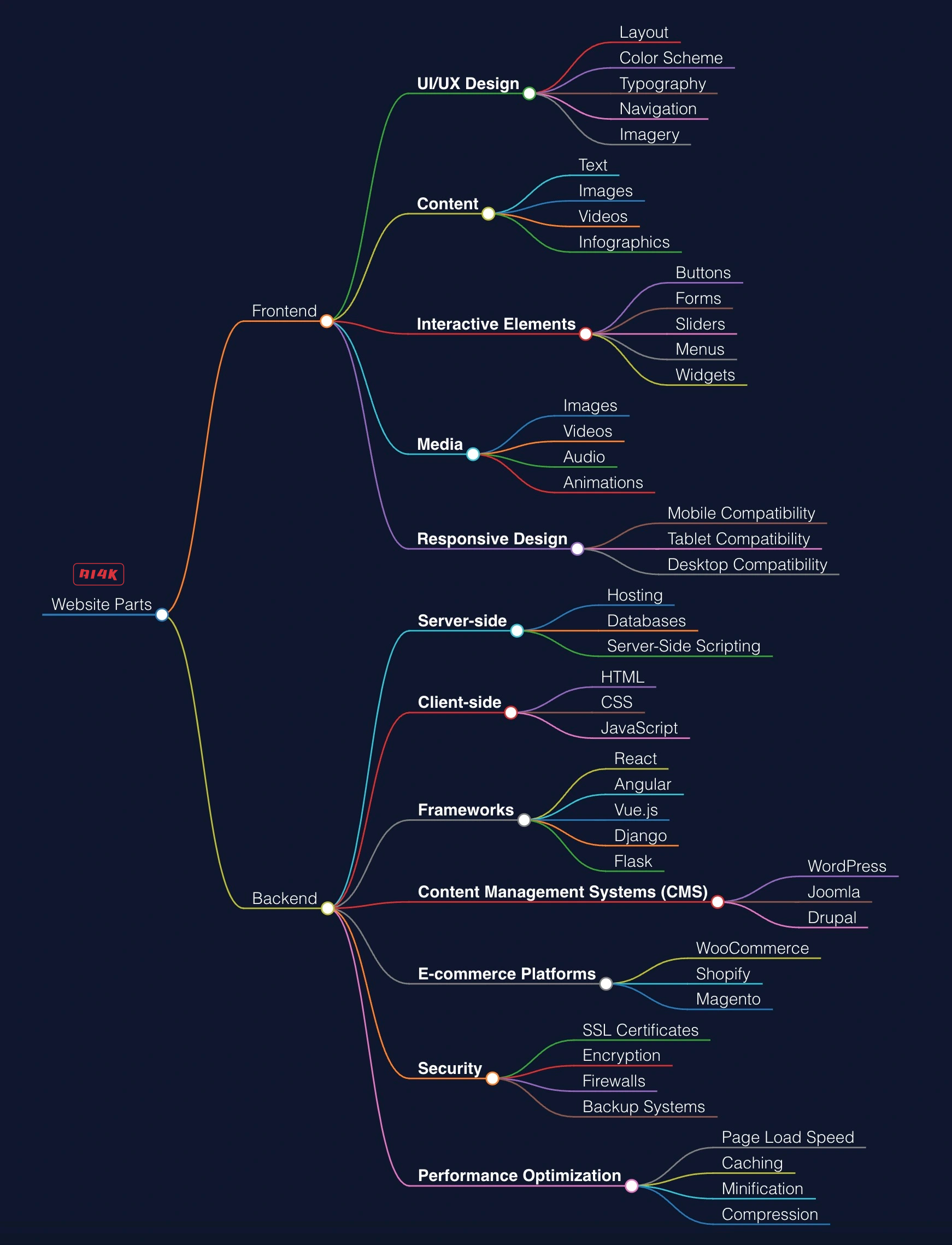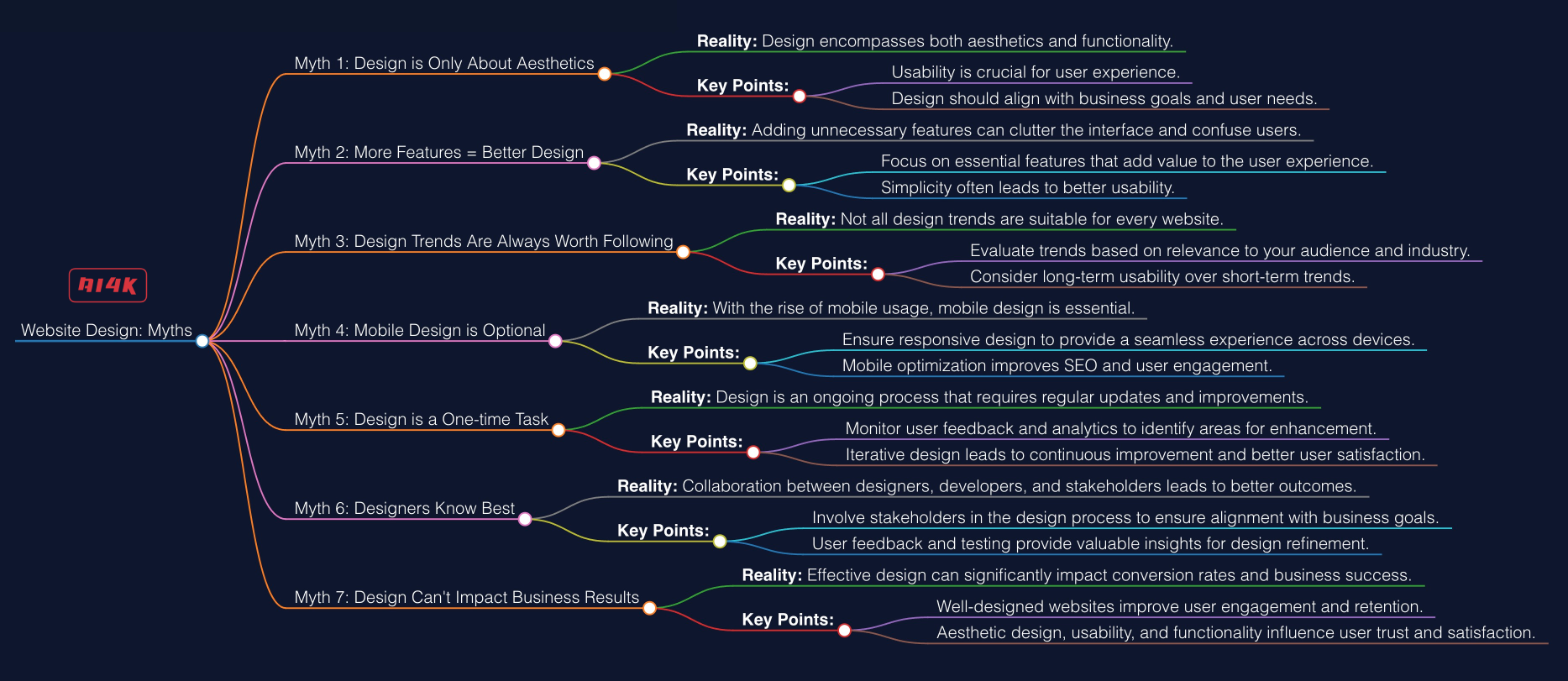Conclusion
In conclusion, debunking these common myths about web design is essential for businesses seeking to establish a successful online presence.
Understanding that web design encompasses more than just aesthetics and recognizing the ongoing maintenance and optimization required for success are crucial steps toward achieving online business goals.
By acknowledging the importance of finding the best web designer who can deliver both quality and affordability, businesses can make informed decisions and invest in strategies that lead to effective and successful web presences.
With a clear understanding of the truth about web design, businesses can navigate the digital landscape with confidence, knowing that their websites are positioned for success.
Let’s wrap it up:
Web Design is Just About Looks
One prevalent myth is that web design is solely about aesthetics. While visual appeal is important, effective web design encompasses much more. It involves creating intuitive navigation, optimizing user experience, and designing for accessibility and responsiveness across various devices.
Anyone Can Design a Website
Another misconception is that anyone with basic computer skills can design a website. While DIY website builders have made it easier to create basic sites, designing a professional and effective website requires expertise in areas such as user interface (UI) design, user experience (UX) design, coding, and accessibility standards.
Flashy Design Equals Success
Some believe that incorporating flashy animations, complex layouts, and trendy design elements will automatically make a website successful. However, overly elaborate design can overwhelm users and detract from the overall user experience. Effective web design focuses on clarity, simplicity, and usability.
Web Design is a One-Time Project
Contrary to popular belief, web design is not a one-time project. Websites require ongoing maintenance, updates, and optimization to remain effective and competitive. Additionally, user preferences and technology evolve over time, necessitating periodic redesigns or refreshes to stay relevant.
Mobile Design is Optional
With the increasing prevalence of mobile devices, some mistakenly believe that designing for mobile is optional. In reality, mobile optimization is essential for reaching and engaging with a diverse audience. Responsive design ensures that websites adapt seamlessly to various screen sizes and devices, enhancing user experience and accessibility.
SEO is Separate from Web Design
Another myth is that search engine optimization (SEO) is unrelated to web design. In reality, web design and SEO are closely intertwined. Factors such as site structure, page load speed, mobile-friendliness, and content organization all impact a website’s search engine ranking and visibility.
Good Design Guarantees Success
While effective web design is essential for online success, it’s not a guarantee of success on its own. Factors such as marketing strategy, product quality, customer service, and market demand all play critical roles in determining a website’s success. Effective web design is just one piece of the puzzle.
